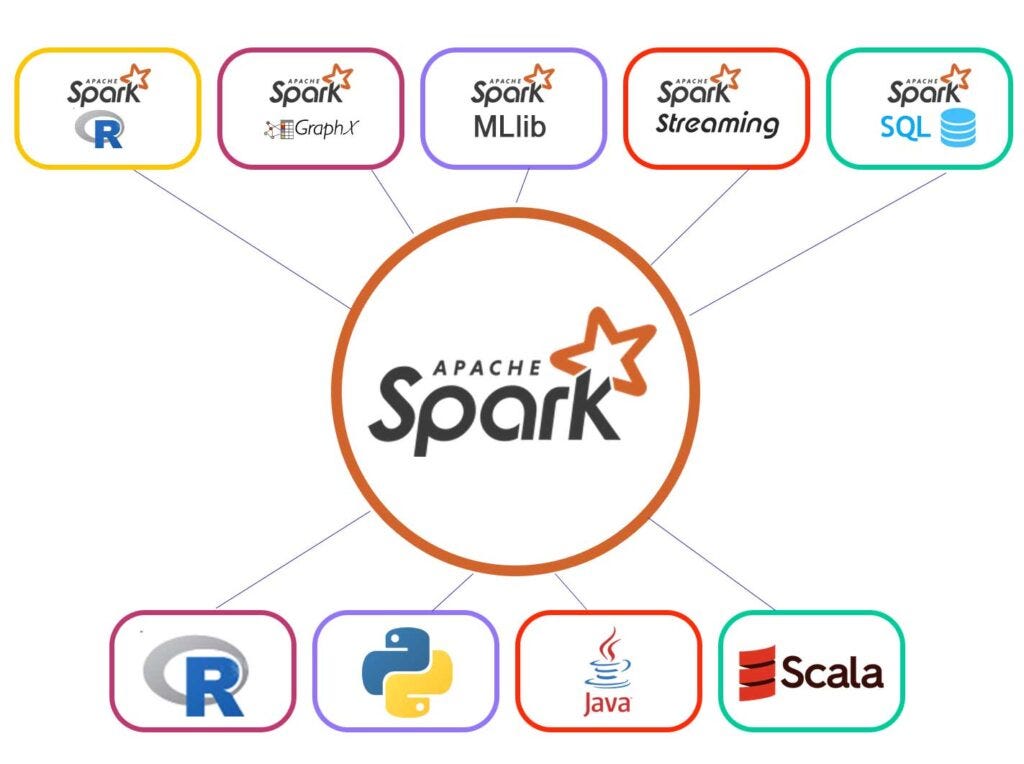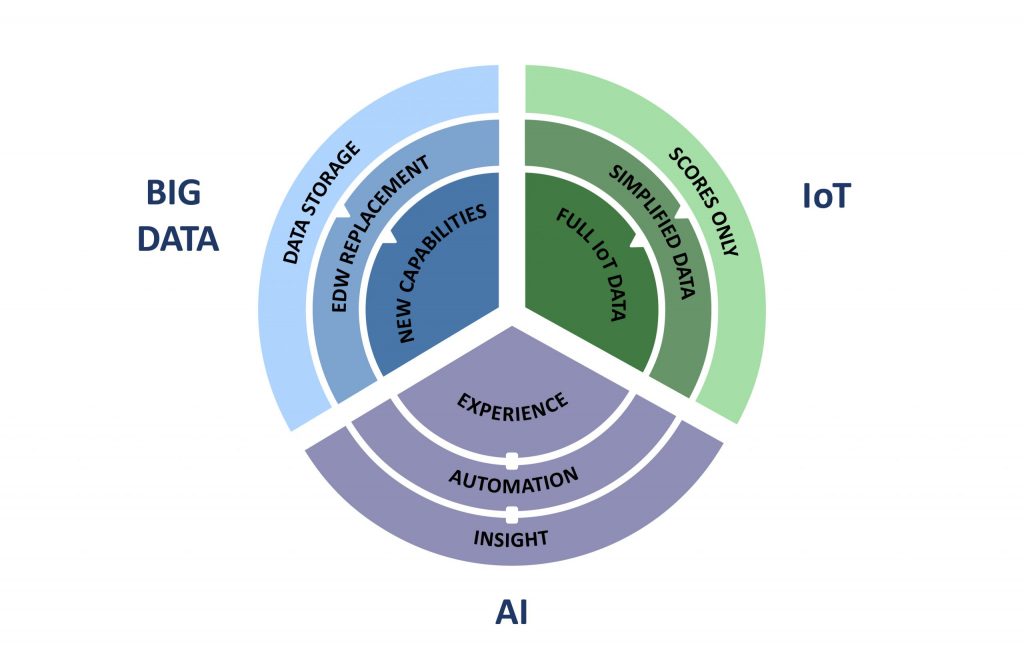
- Who is the Big Daddy?
- Hadoop’s Dominance in Big Data
- Apache Spark as a Successor
- Comparing Hadoop and Spark
- Google’s BigQuery and Cloud Giants
- The Role of AI in Big Data
- Most Used Big Data Tools Today
- Case Studies: Global Adoption
- Big Data in Healthcare and Finance
- Big Data’s Role in Decision Making
- Future Trends and Innovations
- Final Thoughts: Who Leads the Big Data Game?
Introduction to Hadoop MapReduce
Big Daddy of Big Data has drastically changed the way organizations operate, analyze, and interact with data. In the past decade, we have seen the emergence of several technologies and tools designed to handle vast amounts of data. Among these, Hadoop and Apache Spark have risen to the top as the most influential players in the field. But as new technologies like Google’s BigQuery and cloud computing solutions gain momentum, the question arises: Who is the “Big Daddy” in Big Data? Hadoop has long been seen as the foundation of big data processing, Data Science Training especially for distributed storage and processing of large datasets. However, as the landscape has evolved, tools like Apache Spark have emerged as strong contenders due to their speed and flexibility. The current Big Daddy of Big Data can be considered a combination of these two technologies, with the cloud and AI tools making a powerful impact. Let’s explore how Hadoop and Spark continue to dominate, cloud computing and what role emerging players are starting to take.
Hadoop’s Dominance in Big Data
Since its inception in 2005, Apache Hadoop has been the cornerstone of Big Data. It provides a distributed storage model known as HDFS (Hadoop Distributed File System) and a processing engine called MapReduce. Hadoop’s main strength lies in its ability to store and process vast amounts of unstructured data at a low cost, and its scalability ensures that it can handle the growing demands of big data. The core reason for Hadoop’s success is its ecosystem. Besides HDFS and MapReduce, Hadoop includes a suite of What is Data Pipelining additional tools such as Hive, Pig, and HBase, each designed to address specific use cases like querying, data warehousing, and NoSQL storage. Hadoop also provides fault tolerance and resource management, making it a reliable solution for organizations to process large-scale datasets. However, Hadoop is not without limitations. The biggest downside is the relatively slow processing speed, particularly when compared to newer technologies like Spark. Nevertheless, Big Daddy of Big Data Hadoop remains widely used, particularly in industries where cost is a primary concern, and real-time processing is not as crucial.
Do You Want to Learn More About Data Science? Get Info From Our Data Science Course Training Today!
Apache Spark as a Successor
Apache Spark, developed by UC Berkeley in 2009, is often referred to as the successor to Hadoop due to its ability to perform faster data processing. Unlike Hadoop’s MapReduce, Spark performs in-memory data processing, which significantly speeds up tasks that involve iterative algorithms, such as machine learning or graph processing. Spark is not just faster but also more flexible. It supports real-time stream processing with Spark Streaming, batch processing, interactive queries, What is Splunk Rex and machine learning with MLlib. Its compatibility with other Big Data tools, such as HDFS, Hive, and HBase, makes it a more versatile option for data engineers and analysts.

While Spark shines in terms of speed and flexibility, it does require more computational resources. For this reason, it is often used in environments where high-performance processing is crucial, like data analytics and machine learning. With its ability to scale horizontally and perform tasks efficiently, Spark has emerged as a strong competitor to Hadoop. However, it doesn’t mean that Hadoop is obsolete, as both technologies often complement each other in the real world.
Would You Like to Know More About Data Science? Sign Up For Our Data Science Course Training Now!
Comparing Hadoop and Spark
When comparing Hadoop and Spark, it’s essential to evaluate their strengths and weaknesses.
- Hadoop: Due to the disk-based storage of MapReduce, it can be slower in processing.
- Spark: In-memory processing allows Spark to run much faster, especially for iterative algorithms like machine learning.
- Hadoop: Programming with Hadoop requires knowledge of Java and the MapReduce paradigm, making it more complex Data Science Training.
- Spark: Spark provides high-level APIs in languages such as Python, Scala, and R, making it easier for developers to use.
- Hadoop: Hadoop is ideal for batch processing and large-scale data storage.
- Spark: Spark can handle both batch and stream processing, making it more versatile.
- Hadoop: Cost-effective due to its distributed nature and reliance on commodity hardware.
- Spark: While Spark is faster, it tends to require more memory and resources, potentially increasing costs.
- Hadoop: Hadoop’s ecosystem is extensive and well-established.
- Spark: Spark integrates seamlessly with Hadoop but also has its own growing ecosystem of tools, such as MLlib and GraphX.
- Hadoop – Still used for large-scale storage and batch processing.
- Apache Spark – Gaining popularity due to its speed and versatility.
- Google BigQuery – A popular serverless data warehouse for analytics.
- Amazon Redshift – A fully managed data warehouse in the cloud Scala Certification .
- Tableau – For data visualization, helping businesses interpret Big Data.
- Kafka – A distributed streaming platform used for real-time data processing.
- Elasticsearch – An open-source search and analytics engine for large datasets.
- Healthcare: Hospitals use Big Data for patient data analysis and predictive analytics. Tools like Apache Spark help hospitals predict disease outbreaks and patient outcomes.
- Finance: Financial institutions use Big Data to detect fraud, optimize trading strategies, and manage risk. Hadoop and Spark are frequently Apache Spark Certification used for processing large transaction datasets.
- Retail:Retailers use Big Data for customer behavior analysis, inventory management, and personalized recommendations. Tools like Google BigQuery and Tableau are commonly used.
Processing Speed:
Ease of Use:
Data Handling:
Cost Efficiency:
Ecosystem Compatibility:
While Hadoop still holds a significant share of the Big Data market, Apache Spark’s dominance in real-time analytics and machine learning tasks What is Azure Data Lake has made it a popular choice for modern enterprises. The two technologies are not mutually exclusive, and many organizations use both to leverage their respective strengths.
Google’s BigQuery and Cloud Giants
Cloud services have revolutionized the way big data is stored and processed, with companies like Google, Amazon, and Microsoft offering cloud-based big data solutions. Among these, Google’s BigQuery stands out as a fully managed, serverless data warehouse designed for large-scale data analytics. BigQuery is optimized for high-speed SQL queries over massive datasets, and it runs on the Google Cloud Platform. Unlike Hadoop and Spark, which require setup and infrastructure management, BigQuery abstracts all these complexities, allowing users to focus purely on querying and analytics Elasticsearch Nested Mapping . Its scalability and performance make it suitable for businesses that need fast, low-latency analytics on their data. AWS’s Redshift and Microsoft Azure’s Synapse Analytics are similar to BigQuery but offer different features and pricing models. These cloud giants are competing for the top spot in the Big Data game, with each offering unique capabilities.
Gain Your Master’s Certification in Data Science Training by Enrolling in Our Big Data Analytics Master Program Training Course Now!
The Role of AI in Big Data
The integration of Artificial Intelligence (AI) with Big Data has changed how data is processed, analyzed, Big Daddy of Big Data and used in decision-making. AI helps automate the analysis of large datasets, enabling organizations to derive insights more efficiently.

With AI, tasks like anomaly detection, predictive analytics, and pattern recognition are more accurate and faster. Tools like TensorFlow and PyTorch, often used for machine learning, cloud computing are increasingly integrated with Big Data platforms like Apache Spark for deep analytics. The intersection of AI and Big Data is growing, and as machine learning algorithms evolve, the possibilities for real-time Apache Hive vs HBase Guide , data-driven decisions will expand further. AI’s ability to sift through vast amounts of unstructured data will further solidify Big Data’s position in industries like healthcare, finance, and marketing.
Preparing for Data Science Job? Have a Look at Our Blog on Data Science Interview Questions & Answer To Acte Your Interview!
Most Used Big Data Tools Today
Today, the Big Data ecosystem has become increasingly diverse, with several tools offering specialized capabilities. The most widely used tools today include:
Case Studies: Global Adoption
The global adoption of Big Data tools can be seen across various industries:
Big Data in Healthcare and Finance
Big Data is especially transformative in healthcare and finance. In healthcare, predictive analytics powered by AI and Big Data can help doctors detect diseases earlier, improve treatments, and manage patient care more effectively. In finance, Big Data enables real-time fraud detection, risk assessment, and high-frequency trading. The adoption of Big Data tools like Apache Spark for real-time data processing is crucial for these industries to stay competitive
Big Data’s Role in Decision Making
Big Data provides organizations with insights that help in strategic decision-making. By leveraging tools like Hadoop and Spark, businesses can identify trends, forecast outcomes, and optimize operations. Real-time analytics, predictive models, Big Daddy of Big Data and AI-driven insights allow businesses to make data-backed decisions in areas like marketing, product development, and customer service Apache Hive vs HBase.
Future Trends and Innovations
The future of Big Data lies in automation, cloud computing, edge computing, and real-time analytics. AI will continue to play a significant role, with machine learning models becoming more sophisticated in analyzing large datasets. As 5G networks expand, edge computing will help process data closer to the source, reducing latency and improving efficiency.
Final Thoughts
There is no clear winner when it comes to the Big Data space. While Hadoop and Apache Spark continue to be integral parts of the ecosystem, Google BigQuery and other cloud services are becoming increasingly dominant in modern environments. Ultimately, the choice between these tools depends on the specific needs of the organization, including speed, cost, cloud computing and scalability Data Science Training. In conclusion, Big Data’s future is dynamic, and no single technology holds absolute dominance. As the tools and technologies evolve, so will the ways we interact with data.


